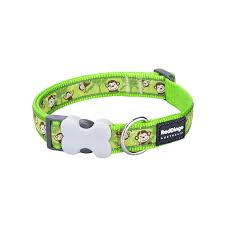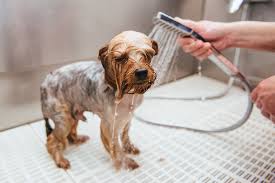The Importance of Understanding Chewing Behavior in Puppies
Chewing is a natural behavior for puppies and plays a crucial role in their development. As a puppy owner, it is essential to understand why puppies chew and how to manage this behavior effectively.
Reasons Why Puppies Chew:
Puppies chew for various reasons, including:
- Teething: Just like human babies, puppies go through a teething phase where they experience discomfort in their gums. Chewing helps alleviate this discomfort.
- Exploration: Puppies use their mouths to explore the world around them. Chewing allows them to learn about different textures and objects.
- Boredom: Puppies may chew out of boredom or lack of mental stimulation. Providing appropriate chew toys can help prevent destructive chewing behavior.
- Anxiety: Some puppies may chew as a way to cope with stress or anxiety. Addressing the underlying cause of anxiety is crucial in managing this behavior.
Tips for Managing Chewing Behavior:
To effectively manage your puppy’s chewing behavior, consider the following tips:
- Provide Chew Toys: Offer a variety of safe and durable chew toys for your puppy to satisfy their natural urge to chew.
- Supervise Your Puppy: Keep a close eye on your puppy, especially during the teething phase, to prevent them from chewing on inappropriate items.
- Training: Use positive reinforcement training techniques to teach your puppy what is acceptable to chew on and what is off-limits.
- Exercise and Playtime: Ensure your puppy gets enough physical exercise and mental stimulation to prevent boredom-induced chewing.
- Consult a Professional: If your puppy’s chewing behavior becomes excessive or destructive, seek advice from a veterinarian or professional dog trainer.
In conclusion, understanding why puppies chew and implementing appropriate management strategies is essential for promoting healthy chewing habits in your furry companion. By providing proper guidance and supervision, you can help your puppy develop good chewing behaviors that will benefit them throughout their life.
7 Essential Tips for Managing Your Puppy’s Chewing Habits
- Provide appropriate chew toys to satisfy your puppy’s chewing instinct.
- Supervise your puppy when they are chewing to ensure their safety.
- Discourage inappropriate chewing by redirecting your puppy to their toys.
- Praise and reward your puppy when they chew on their toys instead of furniture or shoes.
- Rotate the chew toys regularly to keep your puppy interested and engaged.
- Avoid punishing your puppy for chewing, as it can lead to fear or anxiety.
- Consider consulting a professional trainer if your puppy exhibits excessive or destructive chewing behavior.
Provide appropriate chew toys to satisfy your puppy’s chewing instinct.
Providing appropriate chew toys is essential to satisfy your puppy’s natural chewing instinct. By offering a variety of safe and durable toys, you can redirect your puppy’s chewing behavior onto items that are suitable for them to chew on. This not only helps in soothing their teething discomfort but also prevents them from damaging household items. Choosing the right chew toys for your puppy ensures they have an outlet for their chewing needs while promoting healthy dental hygiene and mental stimulation.
Supervise your puppy when they are chewing to ensure their safety.
It is crucial to supervise your puppy while they are chewing to guarantee their safety and well-being. By keeping a watchful eye on your puppy during chewing sessions, you can prevent them from ingesting harmful objects or chewing on items that could pose a risk to their health. Supervision also allows you to redirect your puppy’s chewing behavior towards appropriate chew toys, reinforcing positive habits and minimizing the chances of destructive chewing. Consistent supervision not only promotes a safe environment for your puppy but also helps in shaping responsible chewing behavior as they grow.
Discourage inappropriate chewing by redirecting your puppy to their toys.
To discourage inappropriate chewing behavior in your puppy, it is important to redirect their attention to appropriate chew toys. When you catch your puppy chewing on something they shouldn’t, calmly take the item away and replace it with one of their designated toys. By consistently redirecting them to their toys, you can help reinforce the idea that those items are acceptable to chew on, ultimately guiding them towards forming positive chewing habits.
Praise and reward your puppy when they chew on their toys instead of furniture or shoes.
It is important to praise and reward your puppy when they choose to chew on their toys instead of furniture or shoes. By positively reinforcing this behavior, you are encouraging them to make the right choice and helping them understand what is acceptable to chew on. This positive reinforcement technique not only promotes good chewing habits but also strengthens the bond between you and your puppy. Remember, patience and consistency are key in guiding your puppy towards appropriate chewing behaviors.
Rotate the chew toys regularly to keep your puppy interested and engaged.
To keep your puppy interested and engaged in their chew toys, it is important to rotate them regularly. By introducing new textures, shapes, and flavors periodically, you can prevent your puppy from getting bored with the same toys. Rotating chew toys not only maintains your puppy’s interest but also provides them with mental stimulation and enrichment. This simple practice can help satisfy your puppy’s natural urge to chew while promoting healthy chewing habits.
Avoid punishing your puppy for chewing, as it can lead to fear or anxiety.
It is important to avoid punishing your puppy for chewing, as this can have negative consequences such as fear or anxiety. Punishment may cause your puppy to associate chewing with negative experiences, leading to increased stress and potential behavioral issues. Instead of punishment, focus on redirecting your puppy’s chewing behavior towards appropriate items like chew toys. Positive reinforcement and gentle guidance are more effective in teaching your puppy what is acceptable to chew on, fostering a positive learning environment and strengthening your bond with your furry friend.
Consider consulting a professional trainer if your puppy exhibits excessive or destructive chewing behavior.
If your puppy exhibits excessive or destructive chewing behavior, it is advisable to consider consulting a professional trainer. A trained expert can assess the underlying reasons for your puppy’s behavior and provide guidance on how to effectively manage and redirect their chewing habits. Seeking professional help can not only address the immediate issue but also prevent potential long-term problems, ensuring a harmonious relationship between you and your furry companion.



